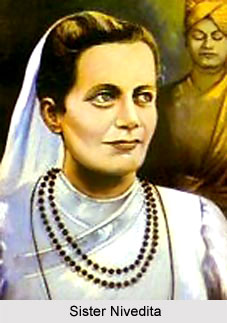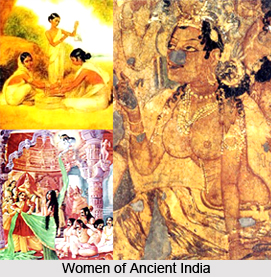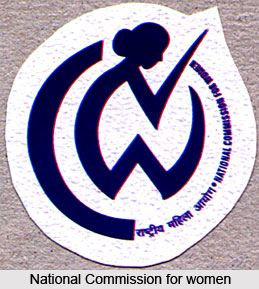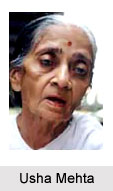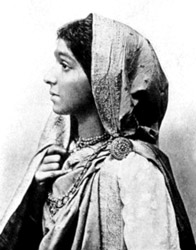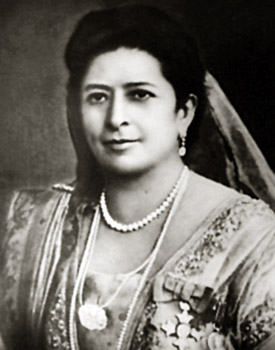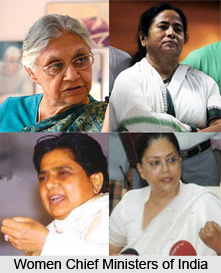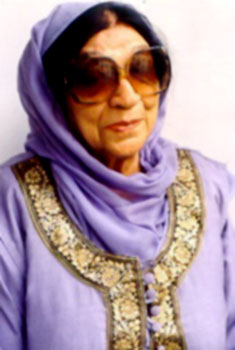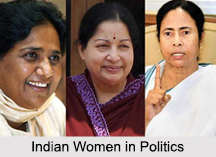 Indian Women in Politics is often cited in rebuttal to accounts and reports that dwell on the subordination of women. Indian women can vote and stand for election to all provincial and central bodies. Women have been ministers, ambassadors and most notably, the Prime Minister. The extent of their involvement in Indian politics is significant in comparison with other countries of the world. Their schemes and political traits have been appreciated by many and criticised by many more.
Indian Women in Politics is often cited in rebuttal to accounts and reports that dwell on the subordination of women. Indian women can vote and stand for election to all provincial and central bodies. Women have been ministers, ambassadors and most notably, the Prime Minister. The extent of their involvement in Indian politics is significant in comparison with other countries of the world. Their schemes and political traits have been appreciated by many and criticised by many more.
Role of Women in Election
A remarkable feature of Indian elections is the participation of women. Women vote is approximately the same proportion as men. Women are increasingly interested in political services and vote independently. The eagerness for voting among women has been as strong as among men. Women voter turn-out increased from 38.8 percent in the 50s to nearly 60 percent in the 90s.
Women in Parliament
The number of women elected to the assemblies often seems larger than it is because of the personalities involved. The first assembly had very few women, about 2 percent, which included:
•Masuma Begum who later became the Minister of Social Welfare and deputy leader of the Congress Party;
•Renuka Ray, a veteran social worker;
•Durgabai Deshmukh, a well-known Gandhian;
•Radhabai Subbarayan, appointed delegate to the first Round Table Conference.
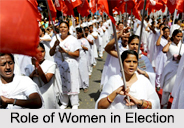 In the following elections, the return was somewhat better and women consistently held 4-5 percent of the seats in the Lok Sabha until the 1980s when their numbers increased to 7-8 percent. In Rajya Sabha, where members are elected by their state assemblies and nominated by the Indian President, women have held between 7 percent and 10 percent of the places.
In the following elections, the return was somewhat better and women consistently held 4-5 percent of the seats in the Lok Sabha until the 1980s when their numbers increased to 7-8 percent. In Rajya Sabha, where members are elected by their state assemblies and nominated by the Indian President, women have held between 7 percent and 10 percent of the places.
Positions of Women in Indian Politics
India had Indira Gandhi as the Prime Minister of the country for around 15 years. Women played a prominent and decisive role in the politics of modern India. Women who have held responsible positions in Indian Politics are:
•Rajkumari Amrit Kaur became Union Health Minister in 1947;
•Renuka Ray was West Bengal`s Minister for Relief and Rehabilitation;
•Sucheta Kriplani was general secretary of the Congress in 1959 and Labour Minister in the Uttar Pradesh Cabinet in 1962;
•Vijaya Lakshmi Pandit was appointed as the Minister for Health and Local Self-Government of Uttar Pradesh in 1937 and the president of the United Nations General Assembly;
•Sushma Swaraj, External Affairs Minister;
•Sumitra Mahajan, Lok Sabha Speaker;
•Soniya Gandhi, INC President;
•Jayalalitha, Chief Minister of Tamil Nadu;
•Mamata Bannerjee, Chief Minister of West Bengal;
•Mayawati, Chief Minister of Uttar Pradesh;
•Vasundhara Raje Scindhiya, Chief Minister of Rajasthan
Thus, women in political positions are highly visual and may serve as models of empowered women. Women have proved to be extremely effective politicians.
